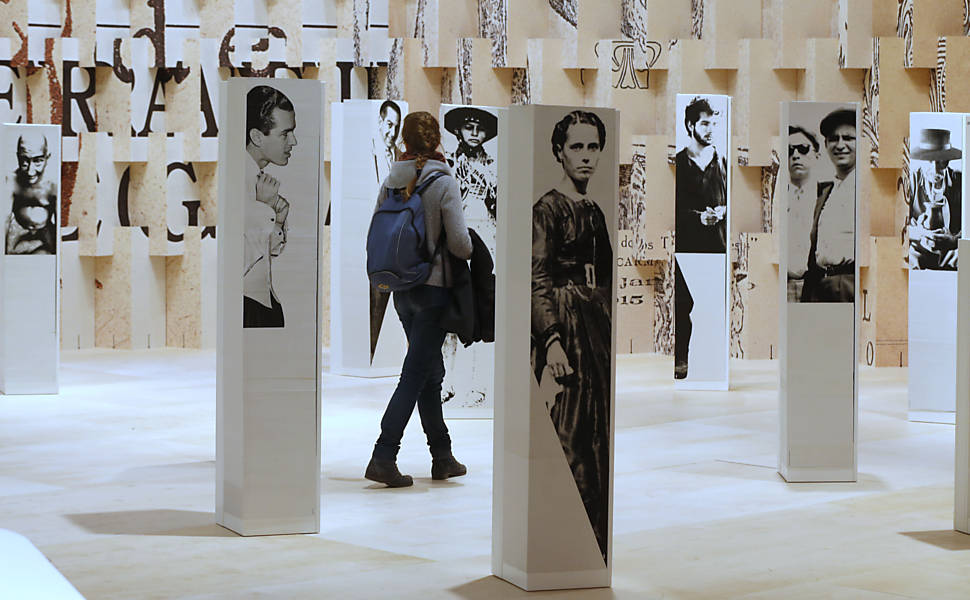From sensuality, samba and football to racism, violence and marginalization, Brazil’s struggles around its self image move onto the world stage, as a select group of Brazilian authors takes on the themes dominating Brazil’s crucial international image.
By Claire Rigby
With the 2014 World Cup just around the corner, practical preparations for welcoming the expected hordes of visitors to Brazil are now kicking off in earnest, with guide books, programmes and brochures being commissioned left, right and centre here in São Paulo. As the country prepares to come under sustained international scrutiny, including from close up, the way it is presented, and the way it presents itself have never seemed of greater importance.
Soul-searching questions about where Brazil is headed and where it has come from are matters of constant debate here, not least as a result of the explosive, insurrectionary month of June. But last week, in a precursor to what may lie in store in 2014, those debates also took to the international stage, at the 65th Frankfurt book fair, to be aired painfully, publicly – and, perhaps, cathartically.
Brazil was this year’s guest of honour at the book fair, in a starring role sponsored by Brazil’s Ministry of Culture and National Library Foundation. The project, which had suffered countless alterations and delays in the period between the announcement of Brazil’s role in 2010 and the fair itself – not least due to the three Ministers for Culture the country has gone through in those three years – brought 150 Brazilian publishing houses and no less than 70 authors to Germany, plus a selection of musicians, artists and a special, Brazil-themed pavilion.
Aesthetically challenged
Ana Maria Machado, a children’s writer and president of the Brazilian Academy of Letters, used her opening ceremony speech to call for wider understanding of Brazil, reaching beyond stereotypes based on physical manifestations of culture that revolve around the body: Brazil as more than just a pretty face. “That body’s intellect is usually forgotten,” said Machado, “in favour of a celebration of our dances and our music; of football, capoeira and other sports; of sensuality and bronzed skin on display on our beaches; of Carnival and of caipirinha.”
While scores of the world’s less aesthetically gifted countries can only dream of having problems like these, Machado’s comment nevertheless encapsulates some of the motifs that are often internalised and presented to the outside world by Brazil, as being Brazil. It also finds echoes in other complaints about simplistic conceptions of the country, including in the ways it is represented visually, in photography.
But in the case of Frankfurt, Machado’s wish for a deepened, more complex and intellectual consideration of Brazil’s nature had come true. “Brazil has revealed itself to be an anguished country,” said Juergen Boos, the book fair’s president during its closing ceremony on 13 October, “but one that keeps moving forward.”
Much ado
The controversies began in the run-up to the event, when the world-famous Brazilian author Paulo Coelho objected to the list of 70 Brazilian authors invited to Frankfurt. Withdrawing from his planned appearance at the book fair in protest, Coelho gave an interview to the German newspaper Die Welt, suggesting that the selection might be tainted by nepotism, featuring writers who were presumably “friends of friends of friends”. Coelho, the Jack Vettriano of Brazilian literature, who sells millions of copies of his books but is looked on with scorn by the Brazilian literary establishment, complained that he had only heard of 20 of the 70 authors, and questioned whether they were all professional writers.
In contrast with Brazil’s previous appearance as the book fair’s guest of honour, in 1994, when the country presented mainly canonical authors like Jorge Amado and Machado de Assis, the Brazilian contingent sent to Germany this year comprised a youngish, São Paulo-heavy cohort, many of whose works have been published in recent anthologies like Granta’s The Best of Young Brazilian Novelists, and in a new anthology, Other Carnivals: New Stories from Brazil, launched at this month’s first Flipside festival – a UK mini-version of the Flip literary festival held each year in Paraty.
Coelho also commented on the fact that the list of authors only included one indigenous author, Daniel Munduruku, and one black writer: Paulo Lins, author of the 1997 book Cidade de Deus [City of God], which became the award-winning, hard-hitting favela-set film of the same name. At the end of the fair, in his closing-ceremony speech, Lins said,“Brazil is a racist country, like the majority of the countries in Europe. There was no racism in the list of authors who were invited.” Speaking to the Brazilian website G1 afterwards, Lins said the list was racist only to the extent that it reflected the prejudice that exists within Brazil, “because there are very few black writers in the publishing market.”
Straight talk

But trumping them all, an opening-ceremony speech by the author Luiz Ruffato tackled some of the country’s most painful problems head on, and mercilessly. Pouring petrol on the football-samba-Carnival paradigm, setting it alight and booting it into an audience that included Brazil’s discomforted Vice-President, Michel Temer, and Minister for Culture Marta Suplicy, Ruffato reeled off a series of statistics illustrating Brazil’s savage social inequalities, citing high levels of homophobia, domestic violence, illiteracy and institutionalized racism, in which “housing, education, health, culture and leisure are not the rights of everyone, but the privileges of some.”
Speaking at length of the violence, marginalization and discrimination that mar Brazil, Ruffato said, “We were born under the aegis of a genocide. Of the 4 million Indians who existed in 1500, there are just 900,000 left now, many of whom live in miserable conditions in settlements by the side of highways or in large city favelas.” He referred scathingly to Brazil’s euphemistic self-image as “a racial democracy”: “If our population is mestiço [mixed race], it’s due to European men mating with indigenous or African women. In other words, assimilation came about as a result of the rape of native and black women by white colonizers.”
Presenting himself as “the son of an illiterate laundress and of a semi-literate seller of popcorn,”Ruffato introduced the idea of literature as a force for change. “I myself a popcorn vendor, a cashier in a bar, a shop assistant, a textiles worker, a metal worker, the manager of a diner, had my destiny modified by contact, however fortuitous, with books. … If the reading of a book can change the course of somebody’s life, then society being made up of people, literature can change society.”
Read on
And it can, without a shadow of a doubt, also change the way a society is seen, for better, for worse – or for sheer complexity and depth. Ruffato, the author of a five-volume series fictionalizing the story of the Brazilian working class, from its rural beginnings to the start of the 21st century, is one of ten authors whose work, it was announced last week by Amazon, will soon be published in English on its AmazonCrossing imprint.
Ruffato’s first novel, Eles Eram Muito Cavalos (There Were Many Horses), is one of five full-length works slated to be published (the others are by Eliane Brum, Sérgio Rodrigues, Josy Stoque and Cristovão Tezza) following the Kindle-only publication of short story collections by five other Brazilian authors. Ruffato’s novel takes the form of 69 fragments – moments that all take place on one day in São Paulo, from the points of view of their many protagonists – and his emergence into the sights of a wider audience raises the prospect of new, explosive slants on Brazil, and of new opportunities for interested readers to dive in and learn to understand Brazil, warts and all, as the complex, horrifying, delightful, fascinating place it is.


